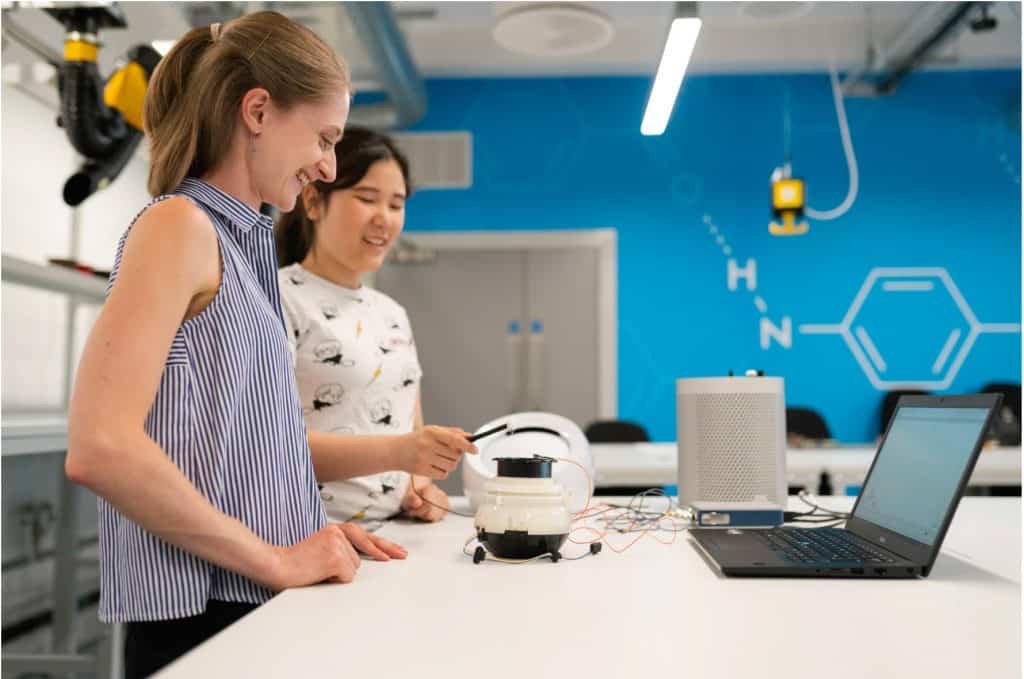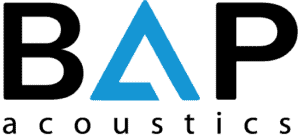How to get there from where you are
In the process of planning a recent temporary escape from the noise of construction and sirens that plagues my neighbourhood, I discovered how versatile the Google Maps iPhone app had become. I’d known it could provide me with a route if I were driving from downtown Vancouver to the Sunshine Coast but hadn’t yet realized that “telling” the app my home address, destination, and choice of transportation—in this case, bus and ferry—would enable it to not only present me with a route, but with several detailed time and schedule specific itineraries, right there at my clicky fingertips. In a world that too often railroads us into less than desirable circumstances, options are some of my favourite things!
Another one of my favorite things is problem-solving from a hypothetical someone else’s perspective and writing out possible solutions with a view to easing their decision-making processes. You know… just in case that hypothetical someone reads what I’ve written.
British émigré and BAP Acoustics principal Mark Gaudet holds a specialized Acoustical Engineering degree from the University of Southampton, UK, while co-principal Eric de Santis traveled to Denmark to earn his MSc in Acoustical Engineering.
A number of UK and EU-based universities offer Acoustical Engineering degree programs at levels from undergraduate to PhD. If you live in Canada or the US, however, you’ll find that those highly specialized degree programs aren’t widely offered on this side of the Atlantic.
But if a career in acoustical engineering consultancy sounds like it might be your cup of Tetley’s Orange Pekoe, take heart. Your journey needn’t begin overseas. Here’s how you can get there from here.

The Edmonton-based Academic Invest website helps postsecondary students map out their career goals by providing information on a broad spectrum of academic paths, educational funding sources, and employment opportunities.
Those drawn to acoustical engineering, the site admins suggest, tend to have a natural aptitude for mathematics and science. Interested in sound and vibration principles, these individuals enjoy identifying and solving technical problems.
Academic Invest defines acoustical engineers as people who “apply the scientific knowledge of sound and vibration for a variety of technological purposes.” Acoustical engineers typically engage in the design, analysis and control of sound for applications such as noise mitigation as well as for proactive uses of sound in areas including medicine and music.
In line with the Acoustical Engineering degree alternatives suggested by Academic Invest (i.e. undergrad or higher-level related engineering degrees) the Engineers Canada website also notes that accreditation/licensing stipulations vary between Canadian provinces/territories and from state to state across the US. A nationally recognized regulatory and accreditation-granting organization that liaises with provincial and territorial engineering associations, Engineers Canada is another valuable resource for anyone interested in pursuing engineering practice qualifications.
“Related” credentials include electrical, mechanical, aeronautical, and civil engineering degrees as well as degrees in physics (or a related area) augmented by a significant volume of acoustics-specific coursework. These options provide students with the flexibility to pursue areas of specialization such as design or architectural acoustics. Students enrolled in these programs typically sign up for a requisite number of core engineering classes (e.g. electrical circuits, fluid mechanics, thermodynamics, and heat transfer) together with courses including architectural acoustics, sound reinforcement, noise control, and environmental acoustics.
“When we’re recruiting for acoustical consultants, we look not only for academic achievement but hands-on equipment and software expertise,” BAP Acoustics partner Mark Gaudet explains. “In addition to strong verbal and written communication skills among all team members, our projects often require proficiency in environmental noise predicting/assessing software such as CadnaA and/or room acoustic simulation programs like EASE, CATT, or ODEON. The acoustical consultants we engage will also have experience in—or a clear understanding of—sound insulation testing, environmental noise monitoring, as well as the measurement and control of reverberation times.”
A word about public infrastructure engineering
Regional differences notwithstanding, if you aspire to a public infrastructure-related engineering career (e.g. designing sound attenuation techniques for rail lines), you’ll need a P.Eng. (Professional Engineer) designation to practice in Canada, or PE (Professional Engineer) licensure in the US. Some consultancies will hire you for other types of project work as you undertake part-time studies to reach those higher goals. In order to receive your P.Eng. designation, Engineers Canada states that you’ll need:
- A degree from an accredited engineering program
- A passing score on a Confirmatory or Fundamentals of Engineering Examination
- Relevant work experience
- A passing score on the National Professional Practice exam (NPPE)
The engineer-in-training journey
Engineers Canada also recommends becoming an engineer-in-training as a reliable route to the engineering career of your choosing. Upon completing the formal engineer-in-training or equivalent process, you’ll need to take three basic steps:
Step 1: Learn your province or territory’s licensure requirements
Each province or territory in Canada has its own engineering regulator, which sets the conditions for professional practice in that jurisdiction.
To find out more about your province or territory’s licensure requirements, read the National Guideline on admission to the practice of engineering. Visit your engineering regulator’s website to find out if your province or territory has an engineer-in-training program.
Step 2: Gain professional experience
All provinces and territories require that applicants for licensure have at least four years of relevant work experience (two years in the province of Québec), including one year in a Canadian environment, and references from engineers. Equivalent international experience may be accepted, and academic examinations might be required.
Enrolling as an engineer-in-training helps you obtain the required work experience under the supervision of an engineer and the references you’ll need to apply for licensure.
Your school may provide you with resources to find engineering jobs near you, or search for opportunities on job boards specifically for engineering students.
Step 3: Meet the final requirements for licensure
In addition to possible technical exams that may be assigned by your provincial or territorial regulator to assess your academic qualifications, licensure requires that you meet jurisdictional good character, ethics and language requirements.
Final qualification includes an assessment of your knowledge of the ethical responsibilities that accompany the privileges of status as an engineer and the legal concepts relevant to practising engineering where you live. In all jurisdictions, this includes writing a professional practice exam, such as the National Professional Practice Examination (NPPE) or a professional practice examination developed by the jurisdiction.
So, who hires acoustical engineers?
It stands to reason that if you’ve invested considerable time and energy to learn about a career that interests you, you’ll also want to have an idea of what your prospects might look like once you’re qualified. Who hires acoustical engineers, anyway?
Well, aside from consulting firms such as BAP Acoustics, potential employers include companies that develop and manufacture:
- noise reduction apparatus
- sound equipment (e.g. speakers or PA systems)
- medical devices, such as ultrasound machinery.
Public institutions such as colleges and universities, the military, as well as government departments at municipal, provincial, and federal levels also hire acoustical engineers, as do industries involved in: property development; construction; transportation; energy and natural resources; and automobile production.
On a final 🎵…
“Acoustical” and “audio” only sound interchangeable
Being extra cognizant “these” days that spreading misinformation is patently uncool, I feel compelled to make the caveat that while the social question-and-answer website Quora shouldn’t be considered a source of indisputable facts, it did provide the only Google hit generated when I searched for the “difference between audio and acoustical engineers.” A Quora contributor explains this difference below. (Paraphrased for clarity.)
Acoustic engineers understand how sound behaves in a room and devise solutions to ensure that behaviour meets requirements. There is a lot of math involved in this work, as well as an understanding of surface absorption and reflective properties.
An audio engineer, on the other hand, might be found sitting behind the large audio mixer at a live event or recording studio and tending to required input and output changes, as well as setting various levels and troubleshooting the processes of performing or recording music.
“Is audio engineering actually engineering?”
Now, this search sent me down a couple of interesting Wikipedia rabbit holes, and I have a clearer sense of why there’s such a dearth of anything definitive on the matter to be found.
Talk: Audio engineer, the first page I landed on, turned out to be more of a debate than an article. The “talk page” had been set up as a means for “discussing improvements” to the Wikipedia article Audio Engineering.
“Audio ‘Engineers’ of the type that operate the equipment required to mix and record sound on records, TV, radio, movies, etc. are not engineers,” according to one P.Eng. licensed page improvement warrior. “Engineers DESIGN the equipment that is used in those fields,” they go on to explain.
After another keen contributor retorts “I’m assuming you have done absolutely no work in the music industry” and shares their knowledge of all things recording industry, it becomes clear to me that, in cyberspace at least, what’s often at play in these examples is a matter of semantics.
Can you call yourself an engineer if you don’t have an engineering degree?
Of course, you can call yourself anything you like: just be aware that skills and qualifications ultimately matter more than titles. (I can almost hear someone who’d never hire a copywriter thoughtfully opine “Whatever. It’s not like you write books; you’re not a real writer.”) It seems that professional titles become especially problematic when they’re nebulous or misleading in some instances because they’re so academically specific in others.
Bottom line: While all of us here at BAP Acoustics enjoy music and might love to attend that Commodore Ballroom show for which you’re doing the sound, we’ll probably understand more about why “those baffles could be better placed” and how ceiling construction enhances venue acoustics than we would about your soundboard alchemy that makes the musicians on stage project their harmonious* best. But we’d enjoy the performance anyway!
*Unless we’re at a punk gig. Then all bets are off and earplugs in place.
Interested in joining the BAP Acoustics team? Visit our Careers page.




